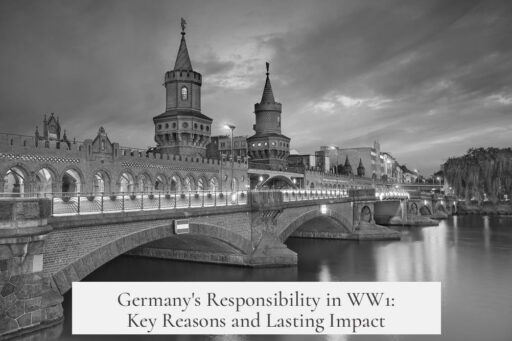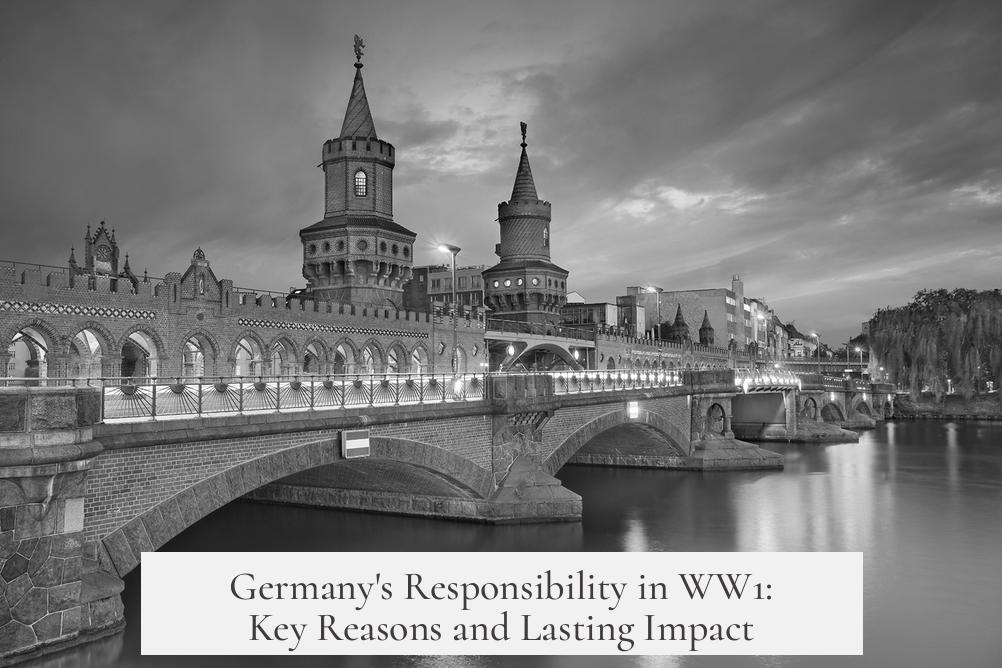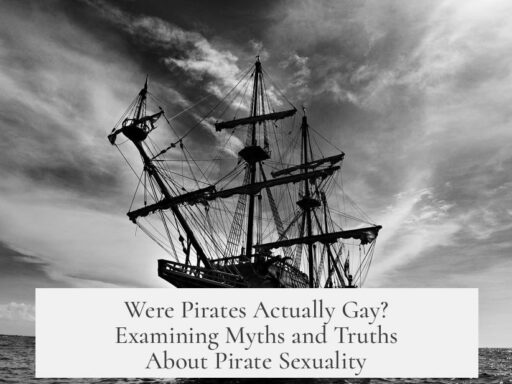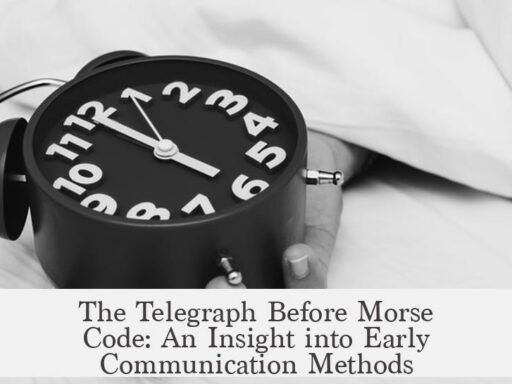Germany is blamed for World War I primarily because of its aggressive military and diplomatic actions that escalated the conflict and the Treaty of Versailles’ War Guilt Clause, which assigned responsibility to Germany and its allies. This blame stems from both political decisions and post-war treaties that justified reparations and restrictions on Germany.
The Treaty of Versailles, signed in 1919, formalizes Germany’s blame through Article 231, known as the War Guilt Clause. This article states that Germany and its allies accept responsibility for all loss and damage caused by the war due to their aggression. However, the clause was originally intended to establish a legal basis for reparations, not to serve as a moral judgment. Despite this, the clause became widely interpreted as Germany admitting sole guilt.
Germany protested Article 231, arguing that the German people did not will the war or undertake aggressive action alone. German officials claimed the government was not solely or mainly to blame. French Prime Minister Georges Clemenceau countered these protests by citing a German government note that accepted reparations for “Germany’s aggression by land, sea, and air.” This sharp disagreement highlighted the political use of Article 231 to justify punitive measures against Germany.
Historians like Sally Marks clarify that the War Guilt Clause’s wording is often misunderstood. The question of responsibility was handled by a separate commission, and Article 231 aimed mainly at financial liability. Germany itself anticipated a clause linking reparations to responsibility. However, they misinterpreted the wording and played a role in creating the narrative of sole German guilt.
Germany’s role in causing World War I stems from several critical actions before the outbreak. After the assassination of Archduke Franz Ferdinand, Germany issued the “blank check” assurance of unconditional support to Austria-Hungary. This pledge encouraged Austria-Hungary to pursue harsh measures against Serbia, which triggered a chain reaction involving Russia and its allies. Germany’s diplomatic encouragement of Austria-Hungary’s aggression escalated tensions significantly.
When war began, Germany declared war on Russia and then France. Its invasion of neutral Belgium violated international treaties, particularly agreements guaranteeing Belgian neutrality. This act directly provoked Britain to join the war against Germany, transforming a regional conflict into a full-scale world war. German leadership underestimated Britain’s response, dismissing the treaty obligations as insignificant, which proved a fatal diplomatic miscalculation.
Germany also pursued unrestricted submarine warfare, aiming to cripple Allied supply lines. This strategy antagonized neutral countries, notably the United States, and contributed significantly to the U.S. entering the war in 1917. Additionally, the Zimmermann Telegram—Germany’s proposal to ally with Mexico against the U.S.—was intercepted and publicized, deepening diplomatic isolation and damage to Germany’s wartime reputation.
The narrative assigning sole responsibility to Germany is partly a post-war political construct. While Germany bore more responsibility than most powers, it was not the only nation to contribute to the complex causes of the war. Other powers engaged in militarism, alliances, and nationalism, all fueling the conflict’s escalation. Nonetheless, Germany’s aggressive strategies, military decisions, and violations of neutrality anchor much of the blame placed upon it.
Key takeaways:
- The Treaty of Versailles’ Article 231 legally assigned responsibility to Germany but was mainly about reparations, not moral guilt.
- Germany’s “blank check” support to Austria-Hungary escalated the regional crisis into a world war.
- The German invasion of Belgium violated neutrality and provoked Britain’s entry into the war.
- Unrestricted submarine warfare and the Zimmermann Telegram worsened Germany’s diplomatic position.
- The war guilt concept is partly a German myth; Germany shared responsibility with other powers but bore more blame due to its aggressive policies.
Why Was Germany Blamed for WW1? Unraveling History’s Most Controversial Finger-Pointing
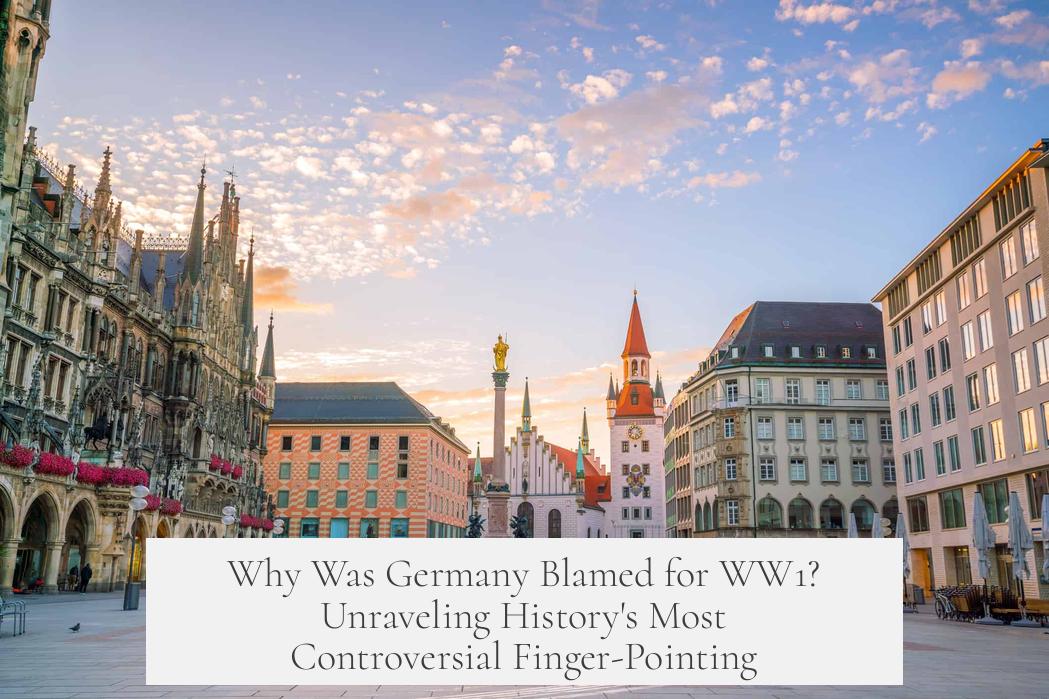
Germany was blamed largely due to its aggressive military actions and diplomatic decisions that set off a chain of events escalating into World War I. But the story is far from simple finger-pointing. It’s a tangled web woven with political agendas, misunderstood clauses, and differing national interests—all converging at the Treaty of Versailles and the infamous War Guilt Clause.
Let’s break this down and see why Germany took the historical rap for WWI, with some quirks and arguments you may not have heard before.
The Treaty of Versailles and the War Guilt Clause: More Than Meets the Eye
Right after the guns fell silent in 1918, world leaders gathered in Paris in 1919 to decide Germany’s fate. The Allies weren’t just wrestling with how to end the war; they were balancing punishment, justice, and the future of European peace.
British Prime Minister David Lloyd George, ever the pragmatist, warned of treating Germany too harshly. He famously said: “If she feels that she has been unjustly treated… she will find means of exacting retribution.” Which sounds wise until you realize Europe was about to serve Germany a slice of historic punishment anyway.
French Premier Georges Clemenceau echoed similar concerns, fearing a backlash from German national pride if the peace terms seemed unfair. Despite this caution, all agreed Germany had to bear responsibility to justify the onerous restrictions imposed on it.
And so came Article 231 of the Treaty of Versailles — the infamous “War Guilt Clause.” This article stated that Germany accepted responsibility “for causing all the loss and damage” from the war. Germany protested sharply, pointing out that the German people did not willingly choose war and that responsibility was not theirs alone.
Interestingly, historian Sally Marks sheds light on a subtlety often lost in popular narratives: Article 231 was less about declaring war guilt and more a financial clause to justify reparations. Germany’s upset reaction was partly due to misinterpretation and mistranslation of this text, turning it unfairly into a symbol of sole guilt.
Germany’s Role in the Outbreak of the War: The Domino Effect Begins
Going back to the sparks that ignited WWI, Austria-Hungary was poised to retaliate against Serbia after Archduke Franz Ferdinand’s assassination. But here’s where Germany’s role complicates matters: it gave Austria-Hungary the infamous “blank check” — an unconditional promise of support, no matter what. This was like handing a mischievous teenager the car keys and telling them, “Go ahead, see how wild you can get.” Unsurprisingly, Austria-Hungary declared war on Serbia, which pulled Russia, and soon after other major powers, into the conflict.
Germany didn’t stop there. It declared war on Russia and France in the early days of August 1914 and then violated Belgian neutrality by invading it. This was a strategic move executed under the Schlieffen Plan meant to quickly knock France out of the war. But it backfired diplomatically. Britain, bound by treaty to protect Belgian neutrality, entered the war. German Chancellor Theobald von Bethmann-Hollweg apparently scoffed at the notion Britain would go to war over what he called a “mere scrap of paper.” Spoiler alert: it wasn’t mere, and Britain did go to war.
Submarine Warfare and The Zimmermann Telegram: Stirring the Pot
Germany’s aggressive naval strategy further worsened its position. By adopting unrestricted submarine warfare, it risked antagonizing neutral countries, especially the U.S., which felt endangered by torpedo attacks on civilian vessels. The final diplomatic blunder came in 1917 with the Zimmermann Telegram, where Germany proposed a military alliance with Mexico against the United States.
This telegram was intercepted and published, inflaming American public opinion and pushing the U.S. into the war, tipping the scales further against Germany.
Summary: Germany’s Partial Blame Amid a Host of Actors
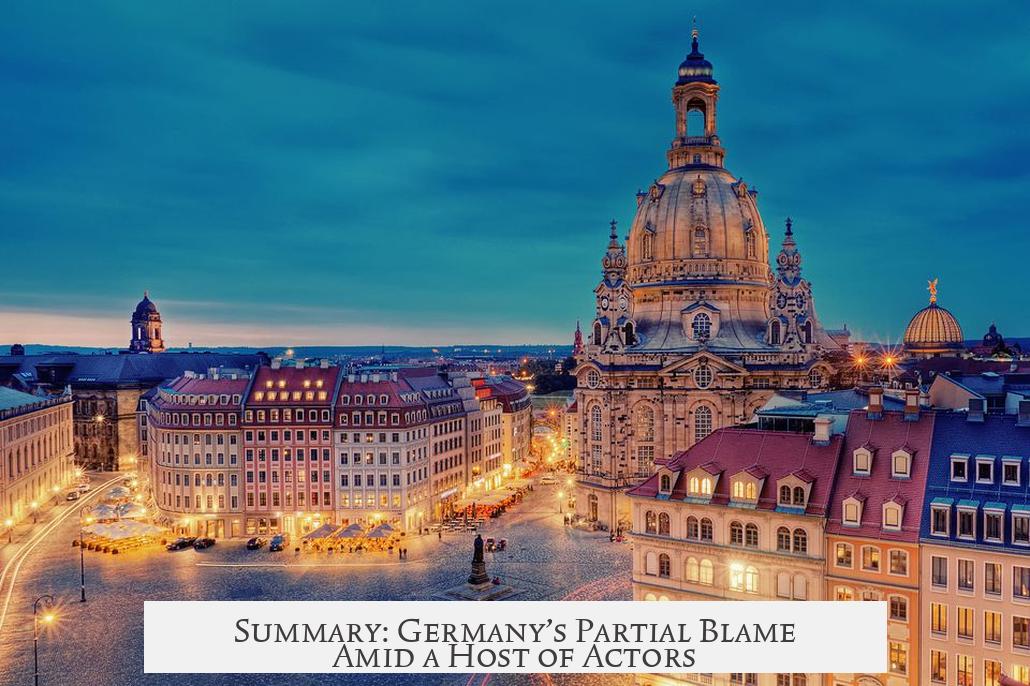
- Germany was neither alone nor entirely to blame for the outbreak of WWI.
- Its diplomatic choices—especially the “blank check,” violating Belgian neutrality, well-timed war declarations, and risky submarine policies—demonstrate a significant share of responsibility.
- The War Guilt Clause in the Treaty of Versailles served political and financial purposes, making Germany a scapegoat to justify reparations and strong restrictions.
- The narrative of Germany’s exclusive guilt partly stemmed from misinterpretations and political mythmaking, especially within Germany itself after the war.
- Revisions that claim equal culpability among all powers or Germany’s innocence often reflect modern political agendas rather than historical consensus.
So, Why Does the Blame Matter Today?
Understanding the complexities behind Germany’s blame sharpens our view of modern diplomacy and conflict resolution. It warns us how fault-finding and punitive peace treaties can sow seeds of resentment, sometimes erupting decades later.
Could the harsh peace have indirectly paved the way for another global conflict? History seems to say yes. Think of it this way: when a country feels “unjustly treated,” resentment simmers. Instead of healing, the wound festers.
History reminds us that assigning blame oversimplifies realities filled with intertwined decisions and unintended consequences. But Germany’s aggressive tactics undeniably lit the fuse.
Actionable Takeaway for History Lovers and Students
If you want to get a balanced grasp of WWI’s origins, dig into primary sources from both Allied and German perspectives. Look beyond Article 231—understand the diplomacy, the military strategies, and the broader European tensions.
Next time you hear “Germany started WW1,” remember it’s a snapshot of a much messier picture involving multiple nations and miscalculations. And keep in mind: sometimes the blame game is as much about politics as facts.
References Cited
- Britain’s David Lloyd George’s reflections on post-war peace
- French PM Georges Clemenceau at the Paris Peace Conference
- Article 231 of the Treaty of Versailles
- German government protests and reparations admissions
- Historian Sally Marks on the myth around Article 231
